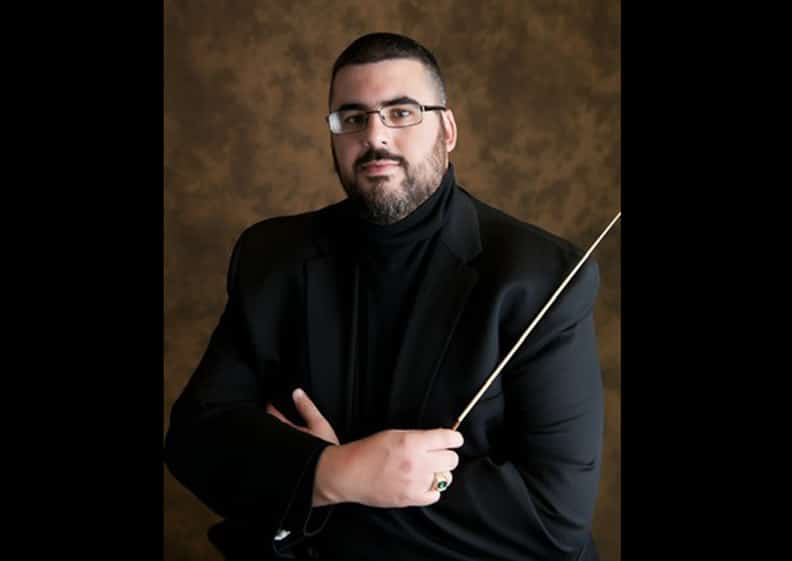How to enunciate 'r's in French opera – and how to be one
mainSome weeks ago, the mezzo-soprano Rinat Shaham had a dilemma. Rinat is the world’s Carmen of choice and a director asked her to change the way she pronounced her ‘r’ for a Belgian audience at La Monnaie. He wanted it gutturalised rather than rolled.
Have you any idea how difficult it is to sing guttural and sound beautiful? It’s no coincidence that radio people prefer to roll their ‘r’s, as do most opera singers.
Rinat, being a willing trooper, tried the guttural track in rehearsal and brought it off tremendously on stage, saving her rolled ‘r’s for the high-lying passages where she could feel comfortable and no-one else would notice. We exchanged a few letters about it, and I was really pleased for her.
This morning, after another production – Massenet’s Cendrillon – some half-arsed reviewer on an internet site has attacked her for singing ‘approximate French’. Just the one comment, nothing penetrative about her performance. One cheap shot.
If I hadn’t known that Rinat worked so hard on her French diction, I might have overlooked that as another bit of internet bile, unworthy of attention. But the comment was xenophobic, possibly racist and intended to hurt. It’s bad reviewing, unamplified and without context.
Opera singers have a right to be respected for the heroic efforts they make to sound credible in several languages. Opera houses should not give tickets to critics who display an anti-foreign bias. If Forum Opera wants to be considered a respectable review site, it needs to remove that remark – and its author. Right now.






Terrible joke from remebered from distant youth:
Director to Scottish singer: I would prefer it if you didn’t roll your ‘r’s so much.
Scottish singer: Och, that would be on account of these high heels I’m wearing!
Oh, so you actually advocate censorship? People are only alowed to write things the censors in this case YOU find appropriate?
And now my comment. You write: “If I hadn’t known that Rinat worked so hard on her French diction,” … well her working hard or indeed SO hard, still does not mean she achieved the goal. Some people need to work very hard and never get there, some don’t have to work at all and achieve the goal. Oh, and yes, life is not fair.
Then you end with “Opera singers have a right to be respected for the heroic efforts they make to sound credible in several languages. Opera houses should not give tickets to critics who display an anti-foreign bias.”
Well, the singers know what they get themselves into. Some singers speak more then 5 languages, some only their mother tongue. Unfair? Well tough tities. Not all singers have equal inteligence level. Unfair? And yet they are measured with the same ruler.
Not every language remark is xenofobic or in her case antisemitic, please! And to end this post: it seems to me you are the one being very biased as far as the Ms Shaham goes….
Yes, I advocate censorship. Random abuse is not permitted on this site.
My French is very solid. I read the entire article and found a single sentence referring to Ms. Shaham:
“et le français approximatif de Rinat Shaham dans le rôle titre, au timbre peu varié, mais délicieuse à regarder.”
A fragment of a longer sentence, actually. I do not see any racism or anti-semitism. The critic wrote a lengthy report with a greater focus on the production, staging, decor etc. He states early on that the regular press (“paper press”) has already praised the singers etc..
The exact translation of the reference to Shaham goes:
” and the approximate French of Rinat Shaham in the title role, ( who exhibited) very little variation in timbre but (who was) “delicious” to look at”.
If I were a singer, especially in a title role, I would certainly not have appreciated this “critique”. Far too brief and basically irrelevant! But I really would not brand it as racist. I have never heard Ms Shaham, but seeing that the rest of the cast is made out of native French speakers, I would not be surprised if her French did not sound utterly “gaulois”. I bet your Hebrew and mine would not stand a chance compared to hers..
It is quite normal not to roll r’s when singing French nowadays, and many singers succeed perfectly well in singing beautifully even with guttural r’s blended in (see Natalie Dessay, to name but one). The discussion on what’s preferable is far from closed, but I believe many feel the rolled r is too unnatural when compared to spoken modern French.
I fail however to see how a small remark like the one in this review, however unjust it might be, could imply xenophobia, let alone racism. The reviewer doesn’t mention Shaham’s nationality or race. Every artist knows how it feels to have an intense performance of several hours reduced by a criic to a small phrase singling out a perceived minor defect. It’s part of the job and I suppose Rinat Shaham knows how to deal with it.
She was the only non-French member of the cast. None of her colleagues had criticised her French, just one jerk in the stalls. That strikes me as xenophobic.
Point taken. Having lived in France for several years now, I have probably become too acustomed to reading this kind of “critique”…
I sang many French operas during my career(most the Paris Opera). My pronunciation was always praised by French critics as be “native”. I always found the gutteral “r” impossible and, therefore, used the rolled ‘r’. Since when do directors have a say in the way a singers enunciates the language.
Most of my French colleagues now use the gutteral “r” and it is indeed very difficult to bring the vowel that follows it into a forward, bright position, so I do a light rolled “r” instead. Bernac, and the older generation were much against the gutteral “r”, considering it to be vulgar. I agree that directors, beyond having the right to say if they don’t understand what they are hearing, have no right to pontificate on pronunciation, though I gather that in some theatres, the management have laid down that the gutteral “r” must be used; Compiègne is one such, I believe.
A non native French person gets a comment on their French being “approximate”? In a french speaking country? Seem like par for the course, whatever the person’s abilities.
My teacher was a man named Martial Singher – a Frenchman. He was also educated in French literature and was pursuing a doctorate in that field when friends convinced him to audition at the Conservatoire in Paris. He was quite well acquainted with the tradition of theatrical declamation in France and his rule was that the ONLY role in which he would accept the glottal “r” was indeed Carmen – but none of the rest. Even though he and many others can occasionly be heard using the glottal “r” in recordings, he and most of the rest of the best French vocal artists were trying to roll the “r´s”. The fact that all of them used the glottal “r” in conversation was the reason that it occasionally slipped through in singing. Hard to control. None-the-less, the group of young French singers who advocate the use of the glottal “r” are simply wrong. We gripe when stage directors restage operas so as to make them “modern”, but accept the destruction of historical singing practice, because it makes the sung text sound more “modern” ? Its like pronouncing “Faust” in the German way instead of the French way – to be modern. Or “Don José” as a Spaniard would, because it sounds “modern”. Unfortunately, it doesn´t fit the melodic construction. But, as a famous figure in a Strauss operetta repeats all night long, “chacun a son gout ! “
I thnk the critic was simply taking the oppotunity to create criticism, and – since he probably has little else to offer – criticising the French of the only non-French cast member is sort of like shooting sitting ducks ! Sheesh. These people are everywhere. I doubt it was truly xenophobic, just the one certain negative he could come up with for the evening. If you you don´t know what else you can say, criticise the pronounciation of the non-native speakers. Interestingly enough, its more often than not that the non-natives deliver the better text/dialogue, because they have to work harder at it.
I am a former Micaela, who has sung in the biggest European houses with some of the most famous Carmens of my generation such as Agnes Baltsa, (also obviously non-French) . Also obvious that she didn’t sing Carmen like a French person. One can’t have it all……so this critic obviously wasn’t interested in the performer or performance as a whole and was looking for something or someone to pick on. Typical but sad.
I don’t know if I would call it racist. I can see that someone might think that it does sort of imply something of “we the French who have no accent are the only ones who should be seen as relating to our language properly in an opera.” The kind of superior behavior that forms the glue that makes sure a group doesn’t hold together. It’s normal superior kind of behavior, maybe. Maybe the writer had an issue with her French just the same as that he would criticize another technical aspect. But then none of the other singers criticized her French. But then maybe they were shy to. Maybe it’s the butler’s fault? Is there a red herring? Did her brand of lipstick somehow numb her tongue for this one performance? Who makes this lipstick or was this intentional to ridicule her for some reason because of jealousy professional (who added the numbing agent) or was it for some other reason? You do have non toxic make-up by the way. I do think it’s just sort of standard that people will poke fun of someone with an accent as not being “with us”. It’s sort of just an insecurity people have. And accents then have stereotypes that go with them. I’m glad this was brought up because I’ve been acting out (for my own therapy) a character that has a southern accent. And there’s quite a bit of stereotyping for a character with a southern US accent. So, I’m glad to be reminded to look deeper into this character, which I was already doing. It’s just this empty space I had and I needed perspective…
The guttural “r” is alien to the French stage tradition, until relatively modern times. Bernac had it right. The original Carmen, as well as all the other cast members, would have rolled her own, as the saying goes. Or, as the exotic, not-French not-even-really-Spanish seductress Carmen reputedly said to Don José on the ramparts of Seville, “Hava Nagila!”
Is there an ‘r’ missing in Nagila?
As in Harvard Nagila?
Well, anyway, Merry Christmas, from the ramparts of Seville to everywhere else.
Sorry, but I don’t think the comment was xenophobic. Negative, yes, but nothing more. Being French, I usually notice when a singer’s French pronunciation is not good, and it bothers me. But likewise, I went to see a Magic Flute this week in Paris and I was displeased to hear the French cast’s poor German pronunciation.
Opera lovers are an intolerant lot, especially me: I always dream to get the full package from a singer, and yes, sometimes a tiny defect is enough to spoil my pleasure.
As regards FORUMOPERA.COM, I have been reading their articles for a long time, and they are neither racist nor xenophobic. Just critical, which is their job!
I was at one of Rinat Shaham’s wonderful performances as Carmen in Opera Australia’s production, at the Sydney Opera House earlier this year. Absolutely up there with the best, as far as I’m concerned. I know there has been some discussion of the gutteral “r” both in French and in German, in recent years, with a view to requiring its use in both opera and art song. The technical Catch-22, which all singers understand, remains.
The old conundrum: la musica o le parole…
I was trained by coaches who had all studied with Pierre Bernac. I was taught it was “caberet” and not lyric French to sing with the gutteral “r.” I was also taught that I should flip and not roll the “r” in French. The rolled “r” was only to be used at moments of great drama or impact. It was greatly impressed upon me that lyric (read stage) French was much different than spoken French. I still teach my students to flip the “r.” MHO.